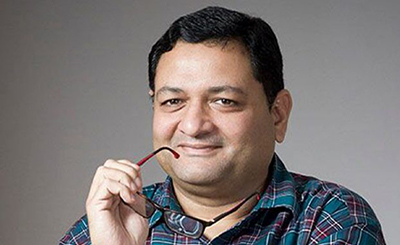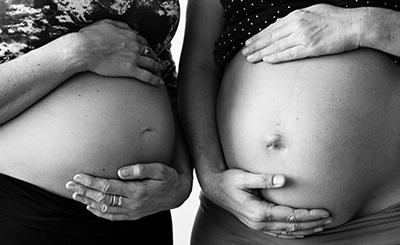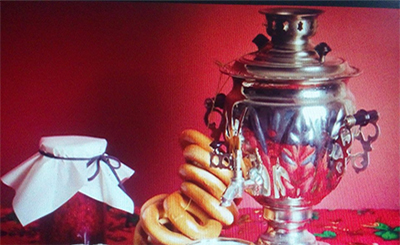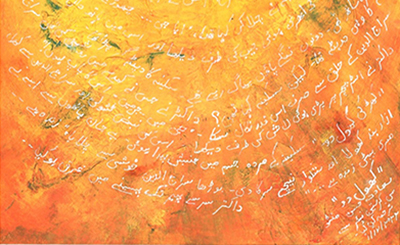
Krupa Ge, author of What We Know About Her. Photo. Vinay Aravind
The protagonist, Yamuna, who has inherited the rebellious streak and the brooding spirit of her foremothers, is hell bent on inheriting an ancestral home from her grandfather but fails to notice that the stench of the women wronged over generations still lingers in that house
“They were more than their marriages. They had this ability to build worlds of their own. Limited-entry, invite-only worlds. Where they did as they pleased……all the while aware of the fact that it was all brief; an incandescence. That it all had to be quickly dismantled and hidden away from those who sought to bind them,” observes the protagonist’s mother in Krupa Ge’s What We Know About Her. As much as it is an enquiry into a culture’s brutal treatment of its women, Ge’s debut novel is also an exploration into the dual lives of women, which enables them to indulge in creative pursuits, risk falling in love, confide in each other and feel ‘what if’ for a fleeting moment, and experience what it feels like to be free.
The protagonist, Yamuna, who has inherited the rebellious streak and the brooding spirit of her foremothers, is hell bent on inheriting an ancestral home from her grandfather but fails to notice that the stench of the women wronged over generations still lingers in that house, rendering every visitor except her, ill at ease. Catching hold of a love letter written by her grandmother to her Thaatha, Yamuna flings herself on a journey of unravelling the mystery surrounding her grand aunt Lalitha, a renowned Carnatic musician and a fashion icon, no less, all the while struggling with her failing relationship and a PhD, which has come to a standstill, challenging everyday sexism and bickering with her mother. Excerpts from an interview:
Saumya Singh: The mystery regarding the protagonist’s grand aunt Lalitha builds up in a fashion that it almost lends the novel the character of a thriller. When you set out to write the novel, did you consciously decide that this is how the narrative is going to pan out?
Krupa Ge: I knew the story I wanted to write, and I knew that there were seemingly dark secrets that the protagonist had to uncover. I knew from the beginning that this was to be a story of very ordinary betrayals. But those betrayals would echo through generations. It surprised me as well, that it took on the character of a thriller, though I hadn’t intended it that way.
Saumya Singh: How was the process of writing and publishing this book different from your previous book, which was a non-fiction?
Krupa Ge: For starters, selling non-fiction to a publisher was easier. I only had to write a proposal. That’s of course because I was a journalist and had a track record. With fiction, it’s taken me nine years. It took that long to convince the literary establishment that I could be trusted to tell a fictional story as well. But I guess, in a way I needed that time myself to evolve, and find my voice. I am much more confident of what I am putting out now.
Saumya Singh: You show us a Banaras through the eyes of a woman on a mission and then a Chennai through the perspective of a woman in love. You grew up in Chennai, but as far as Banaras is considered, how did you go about distilling its essence on paper? What are some of your fond memories from the days when you were researching for the novel’s setting?
Krupa Ge: A lot of what you read of Banaras initially are actually my impressions of the Uttar Pradesh of late 2000s. Almost like a time capsule. From what now feels like another era. I wanted to keep it that way, to preserve for myself the experiences I had, as a South Indian, who was seeing a very different world in UP as a 20-something. The descriptions you read are all images that have stayed with me. I was working in a newspaper then, and I visited Banaras in the aftermath of my maternal grandmother’s death. And I came back and wrote a bit. And that became the train journey and the exploration of the ghats. In the second half of the book, I wanted to take some time to reflect on how much more different things are between Tamil Nadu and UP now. Politically, especially.
Saumya Singh: The protagonist being named Yamuna can be interpreted as being connected to your previous book, Rivers Remember. Why Yamuna, and not Ganga, Narmada or Kaveri?
Krupa Ge: Honestly, I liked the sound of Yamuna better, and the protagonist felt like a Yamuna more than anything else. Subbu is named so, as you can imagine, for the immortal connection the name has to music. Lalitha, Saveri and Yamuna [Kalyani] are all names of ragas.
Saumya Singh: Yamuna shares an idiosyncratic relationship with her grandfather; whereas on the one hand he claims his custodianship over the letters of his wife when Yamuna sneaks them in, on the other hand he sets her up with a guy she falls in love with. Is that somehow inspired by your own relationship with your grandfather?
Krupa Ge: Unfortunately, both my grandfathers passed away when I was young. And I had not had the chance to know them intimately. The one in the book is a product of my imagination; he serves a very specific purpose in the story, which is to delay Yamuna’s access to that final letter. Though my maternal grandfather was a harmonium player and the founder of the Cine Musicians Union in Madras. I wanted to put that in my book as a way to honour what little I knew of him.
Saumya Singh: Historically, women’s achievements and adventures have largely been left unrecorded and it’s largely the oral tradition through which women’s desires, alternative histories and imaginations have travelled through centuries. Viewed in this context, the letters of her grandmother and grandaunt are not merely deeply personal correspondences but colossal repositories of women’s history. Is the epistolary format in some ways an ode towards letter writing as a subversive space for expression which the patriarchal structures have denied women for so long?
Krupa Ge: Yes. Yamuna says so when she discovers the first letter. ‘Men wrote, I took that for granted’. For me, it was also very important that you didn’t just hear about the women. That you heard the women. I wanted them to speak freely as they would only to each other or after they had gained some confidence in life. I wanted to have as many first-person female voices as I could in the book, which is why the letters, the autobiography of Alamelu, etc, feature the way they do.
Saumya Singh: Dispute over inheritance is a quintessential feature of Indian society but a daughter being at loggerheads with her own mother for claiming her right over ancestral property is quite unusual. Can you elaborate upon the kind of mother-daughter relationship you’ve portrayed in the novel?
Krupa Ge: I thought that a mother-daughter inheritance fight would make for an interesting premise in fiction, as in real life, these grievances can run for generations. You can inherit a dispute too, even if not legal, at a familial level. Exploring this fight, this question of what to do with that home which is almost anthropomorphised, and which stands in as a metaphor, the most important piece of the puzzle in this book, felt to me like a worthwhile thing to do in my first fiction.
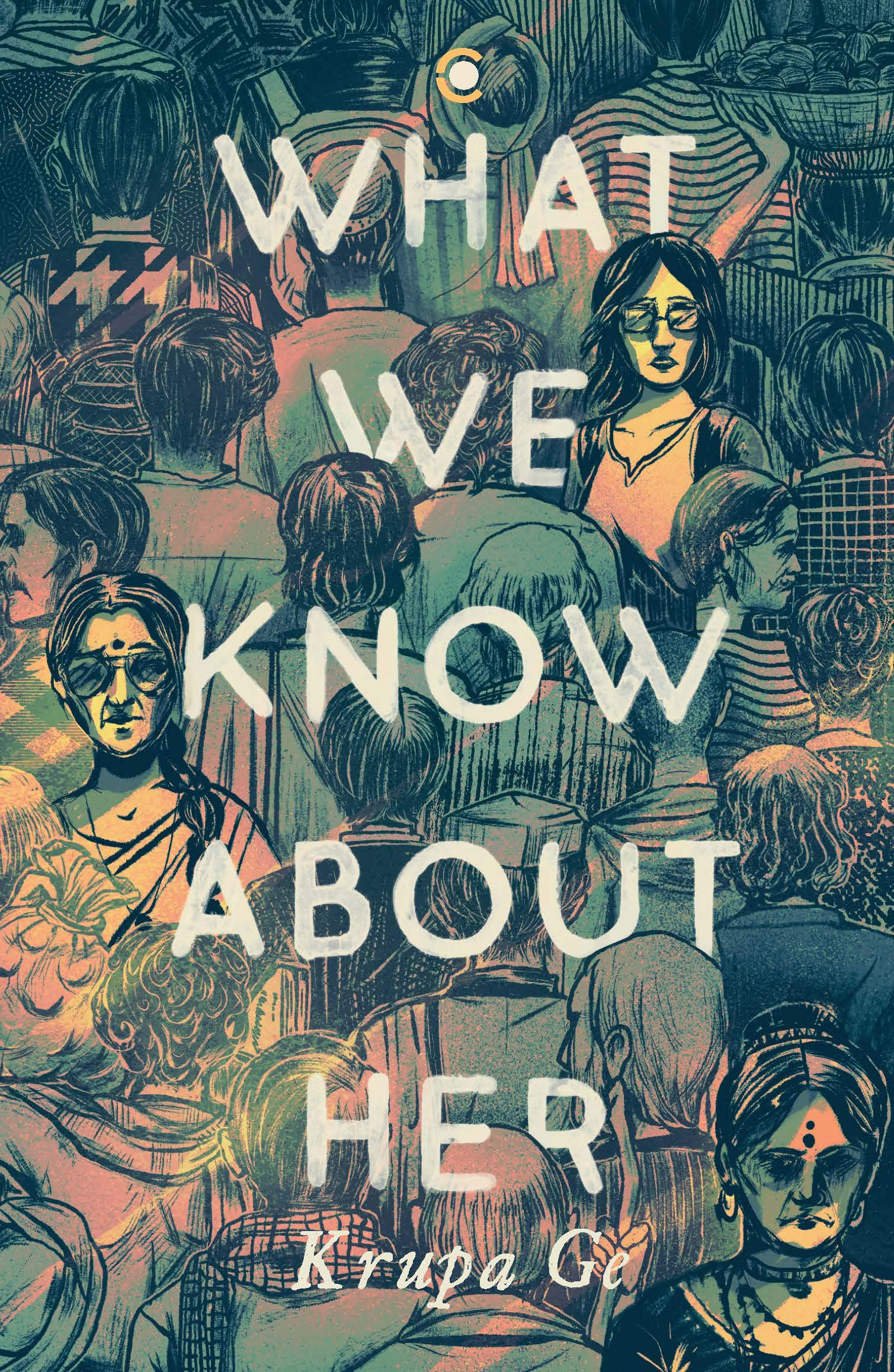
What We Know About Her
By Krupa Ge
Westland,
pp. 204, Rs 499
Saumya Singh: By digging through the past of her grandmother and grandaunt, Yamuna is trying to reconcile with her own identity as a woman; her curiosity, resentment, at times ambivalence, are all manifestations of her questioning the scope of her own agency. In the process she realizes that even though massively oppressed, these women were so much more than just victims. Did some literary precedents inspire you towards this nuanced portrayal of womanhood?
Krupa Ge: Oh, so many. Jane Austen to begin with, her heroines and their vexations are most certainly the first thing that come to mind. Even the device of letters in her books. I have read letters Austen herself has written (especially to Cassandra). The familiarity, the reporting of gossip with such seriousness, they were creative fodder. Little Women. Jamaica Kincaid’s books, especially Annie John and Lucy. Marquez’s Ursula in Hundred Years of Solitude.
Saumya Singh: Lalitha was a super successful musician, a loved teacher, someone who fell in love and someone who would not tire of asking difficult questions in her letters. Yet, can these be read as being more than just coping mechanisms against the harsh reality of her being a victim of brutal domestic violence?
Krupa Ge: The difficult task before Yamuna, me, and the reader is reconciling these two seemingly disparate parts of the same person’s life. Perhaps Lalitha herself wanted to only be remembered as an artiste, and a mother, and maybe Yamuna’s finding out about these disturbing aspects of her life were needed to educate her about the home she’s so hell-bent on inheriting.
Saumya Singh: As much as it is a novel rooted in the indispensability of recognising the past, it is foregrounded in the urgency of the contemporary times. The CAA-NRC protests, calling out stealthing as rape, condemning the onslaught on free speech are all wedded in the narrative in a quotidian fashion, instead of being eulogized as distinctive acts of political consciousness. Do you think the mundanity afforded to these issues could be replicated in a context where the protagonist was on the other side of the privilege divide?
Krupa Ge: I think the mundanity is both a feature of the inheritance of privilege and ideology. Particularly because Comrade Kannaiya has made some very specific designs to change the course of this family’s destiny constantly. In this story, it was important for me to set things in this particular milieu because at its core it’s also about the violence in these homes. How these events that are ‘political’ would affect someone’s life and the very course it would take, are also functions of their privilege. And so, it might be difficult for me to imagine how that other narrative might have panned out.
Saumya Singh: Lalitha is weirdly obsessed with Hitler, Yamuna’s mother is a veteran political activist and Yamuna doesn’t mince words when it comes to questions of caste, gender or religion. The women in your novel are politically aware. Do you think political consciousness can be passed over generations? If so, how are these women different from each other as active political subjects?
Krupa Ge: I think to a certain extent it can be passed over. Though the point of this book is also the hypocrisy of this political consciousness. A leftist family of arranged marriages, the incredible amount of ‘tolerance’ that is expected of and is delivered by women across generations. Tolerance is almost a virtue in this culture. The women are all political in ways that suit them or their families, I feel.
Saumya Singh: The dubiousness of the public memory of a widely celebrated artist bothers Yamuna. Even in your previous book you emphasized upon the humongous cost of forgetting shared cultural history. How differently do you think the significance of collective memory plays out in the novel and how potent a catalyst do you think it is towards building a just society?
Krupa Ge: The disappointment with collective forgetfulness takes on an almost obsessive form in this novel. The discovery that it’s deliberate is what makes Yamuna come to terms with the duplicity of her family. Think of how biographies or biopics are almost always hagiographies in India. And yet, I think a book that glosses over the messy parts of someone’s life does not honour their memory. It instead seems to self-censor the parts that it thinks of as scandalous. To forget is to insult. I watched Nomadland recently, and the line ‘What’s remembered, lives’ felt accurate to me.
More from The Byword
Comments
*Comments will be moderated






